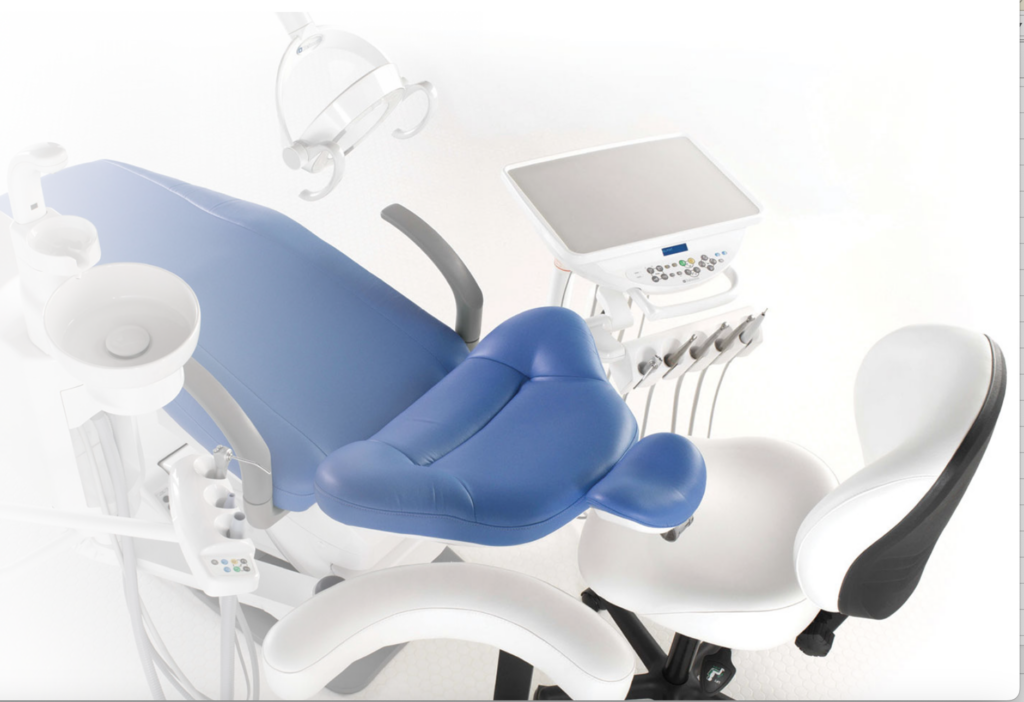January, 2025
now browsing by month
Insights On Leading Australian Dental Supplies Company

Critical Dental is recognised by dentists as among the best dental consumables suppliers in Australia.
They have been family-owned and family-run since its beginning 20 years ago. But altogether, they have some 50 years of experience in the dental field. Their insights in the dental industry help them anticipate the challenges dentists face on a daily basis and develop solutions in dental product supply that empower them to meet those challenges successfully.
What They Do..
On Critical Dental’s website, you’ll find the best dental products Australia has to offer. Their online catalogue lists items from the dental companies Australia dentists love. They curate the best products and deals from around the world and package them in one convenient listing for dentists to shop through.

They have everything you could ever need for your dental clinic or surgery including:
- Suction equipment
- NSK Handpieces http:// https://criticaldental.com.au/nsk-handpieces/
- Fluoride Foam
Out of the many dental materials suppliers in the country, They’re proud to be the exclusive retailers of GlaxoSmithKline products. If you need Sensodyne or Biotene for your clinic, you’ll only find those items listed on their website.
- Compressors
- Patient Rinsing Cups
Award-winning companies such as NSK, Melag and Mun are included in the Critical Dental catalogue of dental products. They also have our own trademark brand, Surgery Selections. They are the only company selling these carefully picked dental products apart from the dentists they sell wholesale to.
- Hand Soap
- Dental chairs
- Medicom Vital Gloves https://criticaldental.com.au/medicom-vitals-nitrile-gloves/
Critical Dental bring efficiency and professionalism to the dental supply industry. Out of all the dental supply companies in Australia, they aim to offer the best experience possible for convenience, affordability and quality.
- Turbines
- Melag Labels https://criticaldental.com.au/melag-labels
- Burs
They deliver across Australia and offer a guarantee on all of our dental consumables. You’ll get your money back if you aren’t completely satisfied with your purchase from the company.
IN THE MEDIA
CRITICAL DENTAL CONFIRM GROWING DEMAND FOR THEIR ONLINE DENTAL SUPPLIES

Critical Dental confirmed that their dental supplies online web portal is growing strongly with dentists now relying on it for their specialist supplies.
Critical Dental is the ultimate source of dental supplies for all dental practice needs and are recognised as one of the top dental supply companies Australia has to offer.
Justin O’Connell said this when interviewed by Metro Cities Media, “Over the years the online sales have experienced year on year growth but post the Covid-19 period our sales have grown strongly and there is no sign of this abating. Aligning ourselves with industry’s leading manufacturers has been so important to our growth in sales. It has allowed online customers to be confident of getting the best products available in Australia at the best price.”
Metro Cities Media found dental supply companies in Australia obtain their inventory from not only Australia but other countries. Critical Dental is no exception. They know that there are quality dental products to be found all around the world, so they carefully source dental equipment and consumables from many different countries.
About Critical Dental
Critical Dental is a family-owned and family-run business since its beginning over 20 years ago. They have over 50 years of combined experience in the dental field. Their insights in the dental industry help them anticipate the challenges dentists face on a daily basis. They have developed dental product supply solutions that assist dentists to concentrate on their profession and leaving the challenges of the efficient supply of dental consumables to them.
The Critical Dental website features the best dental products Australia has to offer. Their online catalogue lists items from the dental companies Australia dentists love and trust. The best products and deals from around the world are curated and packaged in one convenient listing for dentists to shop from online.
Justin O’Connell
Critical Dental

You can view the the range of products they stock by visiting the website here: https://criticaldental.com.au/
Ten Tips For Cleaning Your Teeth

According to experts, very few people brush their teeth as well as they should. All dentists agree, cleaning will remove the bacteria and most plaque from your teeth and gums that can cause gum disease and tooth decay.
Here are some tips that the team have put together for our readers to ponder:
1. Pick the right brush.
From the array of tooth brushes to choose from make sure your brush can cover the places that need cleaning. That’s everywhere you should be able to reach with a toothbrush. It can be a power toothbrush or a manual one, but it must have soft bristles. Hard bristles and vigorous cleaning can permanently damage gums and actually wear down your tooth structure.
The size of the tooth brush’s head is an important consideration too, especially if you have a smaller mouth. Brushes come in all shapes and sizes, with handles of different length and different angles. Some are more flexible while others are ridged.
If your budget allows, there are very good electric brushes, even Hydrosinic ones that is gentle on the teeth and gums.
2. Don’t go to town on your teeth.
When it comes to brushing, just as harder bristles is not better, harder brushing isn’t better either.
Dentists say that the biggest issues that people have is that they try to brush their teeth too hard. They feel that there needs to be a vigorous effort but plaque is soft and loose, so you don’t have to scrub like you are removing barnacles. Dentists recommend the thought of massaging your teeth as the right approach.
3. Dont rush.
You should brush at least twice a day for at least 2 minutes each time.
This is where the modern electric tooth brush is great as it has riming pulses built in for telling you when to move on to each new section of teeth. It creates a good habit of not rushing.
4. Replace your tooth brush regularly.
When you find a good toothbrush, it’s sometimes hard to give it up. But when you see the bristles starting to look discolored, bent, or dirty looking then it’s time to chuck the brush. The timing of this varies from person to person.
It is also smart not to share your brush with anyone else. And keep it in the open air, dry and clean to keep mold or bacteria from growing on it when it’s wet.
5. Cleaning strokes.
Think massage, not scrubbing your teeth.
Start from the gum, and go up and down, in little circular, up-and-down motions.
Aggressive backwards and forwards scrubbing will cause damage. Be careful of your teeth and gums to ensure they last and are not simply rubbed away.
Don’t forget to brush your tongue also, too. That’ll get rid of bacteria.
6. Don’t forget the gums.
Bacteria often settle in where your tooth meets your gum. People miss that area a lot. The gentle up and down tooth brush motions, in little circular, up-and-down massaging strokes will be enough to clean this bacteria away.
7. What angle should the brush be?
It is recommended that the angle of the brush be at a 45-degrees against the gum line. This is particularly important to get the gum line.
You will need to tilt the brush up and down to get the inside of your top and bottom front teeth.
8. Mouth acid after eating.
It’s recommended to rinse out your mouth with some water, to get rid of some of the acid that is created at the time of eating something.
You can wait 15 to 20 minutes and the body naturally neutralises this this acid.

9. Flossing.
Just as brushing your teeth at least twice a day, for least 2 minutes each time is important, so is flossing your teeth at least once a day.
10. Mouth wash.
Just as brushing and flossing your teeth is important, so is rinsing your teeth at least once a day with a high-quality mouth wash. The more we do to remove bacteria the healthier our teeth and gums will be to serve us for years to come.
Need a Sydney dentist?
The media team recommend if you are in Sydney Smile Concepts is a cool dentist to check out. They are one of the most trusted dental practices in Sydney, if not the best Sydney dentist with expertise in all areas of implant, veneer and general dentistry. They strongly believe in their patients having a beautiful smile & natural teeth for life.
Their caring and dedicated team, with over 40 years of combined experience, offer the latest dentistry technology in a modern and relaxed environment.
They believe in individualised care with all treatment being tailored to the particular wants and needs of each patient. All treatment is performed to the highest standards of precision, with the highest quality of materials, and by people with the highest level of skill, integrity, and concern for the client’s wellbeing.

For more information on Smile Concepts, and their range of dental services, visit their website here: https://www.smileconcepts.com.au/
Navigating Data Privacy Compliance for Remote Staffing & Outsourcing

The content team came across this really informative article on privacy compliance issues to consider when using remote staffing and outsourcing. The use of these services is growing sharply by business owners & corporates in recent years and we have gained CDM Direct’s approval for us to republish this on our website for our readers. We hope our readers using virtual assistant teams find this article as useful as we did!
Remote work and offshore outsourcing have become integral parts of business operations worldwide, including in Australia. The flexibility and cost-effectiveness of remote staffing make it an attractive option for many companies.
However, alongside those benefits come significant responsibilities, particularly regarding data privacy compliance. In Australia, businesses are required to align their operations with stringent data privacy regulations to protect personal information and avoid hefty penalties.
This blog explores how remote staffing solutions providers and their clients can navigate the complexities of complying with the Australian Privacy Act 1988. We look at how to comply with the 13 Australian Privacy Principles, manage cross-border data transfers, implement robust data security measures, and respond to data breaches.
Complying with the Privacy Act 1988
The Privacy Act 1988 is the cornerstone of data protection in Australia, and it is underpinned by the Australian Privacy Principles (APPs).
These 13 principles provide a framework for handling personal information, ensuring that individuals’ privacy is protected. The APPs cover various aspects of data management, including:
- Open and Transparent Management: Organisations must manage personal information openly and transparently, with a clear privacy policy.
- Anonymity and Pseudonymity: Individuals should have the option to deal anonymously or pseudonymously where practical.
- Collection of Solicited Personal Information: Information must be collected lawfully and fairly, and only if necessary for the organisation’s functions.
- Dealing with Unsolicited Personal Information: Organisations must assess unsolicited information and destroy or de-identify it if not required.
- Notification of Collection: Individuals must be informed about the collection of their personal information and its intended use.
- Use or Disclosure: Personal information can only be used or disclosed for the primary purpose of collection unless an exception applies.
- Direct Marketing: Restrictions are placed on using personal information for direct marketing.
- Cross-Border Disclosure: Organisations must ensure overseas recipients handle information in compliance with the APPs.
- Adoption, Use or Disclosure of Government Identifiers: Restrictions on using government-related identifiers.
- Quality of Personal Information: Organisations must ensure the accuracy and completeness of the information.
- Security of Personal Information: Reasonable steps must be taken to protect information from misuse, interference, and loss.
- Access to Personal Information: Individuals have the right to access their personal information on request.
- Correction of Personal Information: Organisations must correct inaccurate or incomplete information.
Remote staffing companies should integrate these principles into their policies and practices to comply with the Privacy Act and APPs. This involves conducting regular audits to ensure compliance, training employees on privacy obligations, and updating privacy policies to reflect any changes in data handling practices.
Common challenges include managing data across different jurisdictions and ensuring third-party vendors comply with the APPs, which can be addressed through rigorous contractual agreements and regular compliance checks.
Managing Cross-Border Data Transfers
Cross-border data transfers are a common aspect of remote staffing and outsourcing. However, they pose significant privacy risks if not managed properly. Under the APPs, organisations must ensure that overseas recipients handle personal information in a manner consistent with Australian standards. This often involves obtaining explicit consent from individuals before transferring their data overseas and implementing contractual safeguards to ensure compliance.
To manage cross-border data transfers effectively, companies should conduct thorough due diligence on international partners to assess their data protection practices. Implementing standard contractual clauses can help ensure that overseas recipients comply with the APPs. Additionally, technology solutions like encryption and secure data transfer protocols can provide an added layer of security.
Implementing Robust Data Security Measures
Data security is paramount, especially in remote work environments where employees access company systems from various locations. Implementing multi-factor authentication (MFA) is crucial to secure remote access. MFA requires users to provide two or more verification factors to gain access, significantly reducing the risk of unauthorised access. Virtual Private Networks (VPNs) and encryption tools are also essential for protecting data in transit and at rest.
Remote staffing companies should establish clear BYOD (Bring Your Own Device) policies to manage the security of personal work devices. This includes ensuring that devices have up-to-date antivirus software and are configured to meet the company’s security standards. Regular security assessments of remote work infrastructure can help identify and address vulnerabilities.
Employee training is a critical component of data security. Companies must educate remote staff on data privacy and security best practices, including recognising phishing attempts and reporting suspicious activities. Developing a culture of security awareness ensures that employees remain vigilant and proactive in protecting sensitive information.
Responding to Data Breaches Under the Notifiable Data Breaches Scheme
The Notifiable Data Breaches (NDB) scheme requires organisations to notify affected individuals and the Office of the Australian Information Commissioner (OAIC) of eligible data breaches. An eligible data breach occurs when there is unauthorised access, disclosure, or loss of personal information that is likely to result in serious harm to individuals.
Remote staffing companies must have a robust data breach response plan in place. This plan should outline the steps to be taken in the event of a breach, including identifying and containing the breach, assessing the risk of harm, and notifying affected parties. Assigning clear roles and responsibilities ensures a swift and coordinated response.
When a data breach occurs, transparency is critical. Companies should notify affected individuals promptly, providing clear information about the breach and steps they can take to protect themselves. The OAIC must also be informed as soon as practicable. Regularly reviewing and testing the breach response plan ensures the company is prepared to handle incidents effectively.
Penalties for Non-Compliance
Non-compliance with Australia’s data privacy regulations can result in severe penalties. The maximum penalty for serious or repeated privacy breaches has been increased to whichever is the greater amount: a fine of AUD$50 million, three times the value of any benefit obtained from the misuse of information, or 30% of the company’s turnover in the relevant period.
The penalty for unincorporated entities has increased from AUD$440,000 to AUD$2.5 million. The severity of these sanctions underscores the importance of adhering to data privacy regulations and maintaining robust compliance practices.
For Australian companies that use remote staffing solutions and the companies that offer such services, navigating data privacy compliance requires a comprehensive understanding of the Privacy Act 1988 and the APPs.
Companies can protect sensitive information and avoid costly penalties by implementing best practices for managing cross-border data transfers, enhancing data security measures, and preparing to manage data breaches in worst-case scenarios. As the regulatory landscape continues to evolve, staying informed and acting proactively is essential for maintaining compliance and safeguarding privacy in remote work environments.

CDM Direct have staff at all experience levels available for corporates and professionals to access at any time. They can be seamlessly integrated with the client’s internal team, which saves time and money while improving productivity, efficiency, and customer satisfaction. Clients can opt for a fully outsourced solution that they can also provide.
To Learn more about CDM Direct, visit their website here: https://cdmdirect.com.au/
View the original article and others like it here: DDM Direct Blog
Two Steps To Help Avoid Digital Cyber Scams

The content team are very aware that cybercriminals are at work day and night finding more cunning ways to rob unsuspecting people who dupe them with lies or deceit. Millions of life savings are stolen from hard working Australians who are taken in with what appear legitimate approaches or requests. To help readers avoid cybercrime they have reproduced portions of helpful advice the Australian Signals Directorate publish on their website here: https://www.cyber.gov.au/
We hope this helps our readers stay safe…
Scams are a common way that cybercriminals compromise accounts
Being alert to scam messages is a great way to protect yourself online. These ‘scammers’ may try to compromise your business, workplace or university accounts.
Scammers often use email, text messages, phone calls and social media. Their goal is to scam people into paying money or giving away their personal information. They will often pretend to be a person or organisation you trust.
Don’t fall for scams in two steps
First, check if it is a scam
- Know what to look for. View common types of scams such as dating scams, investment scams, phishing emails and text, or invoice fraud.
- Go direct to a source you can trust. Visit the official website, log in to your account, or call their phone number. Don’t use the links or contact details in the message or given to you on the phone.
- Check what the official source says about what details they might request from you. Often companies or government agencies will say what they will and will not ask you online or over the phone. For example, the bank may tell you that they will never ask for your password. If someone claiming to be from the bank then asks you for your password, you know it is likely a scam.
Then, if you still think it’s a scam
- Don’t click on links, open any attachments or reply to requests. Scam messages may try and trick you into giving out your personal information. A scammer might ask for your bank account details, passwords or credit card numbers. They may also ask you to download files, software, or allow remote access to your computer.
- Contact your bank. Contact your financial institution if you think your credit cards or bank account may be at risk. They may be able to close your account or stop a transaction.
- Report a cybercrime via ReportCyber if you have fallen victim to a scam.
- Help keep Australia secure by reporting the scam to the National Anti-Scam Centre – Scamwatch.
Learn from this video the common tricks that scammers use to steal your money or personal details.
If it seems fishy, there’s a good chance it is.
Case study: The importance of recognising common scams
A young couple’s plan to start a family was crushed when they lost their entire life savings to a banking scam.
It all began when James got a text from a ridesharing company asking him to go to a website to update his credit card details. Later, James got a text from his bank saying scammers were trying to take $5500 from his account. The message, which told him to call the bank’s security team, appeared to be from his bank.
But James was unaware that scammers could disguise their number as the number of a real business. He had no reason to think it was a scam since the text was in the same thread as other messages from his bank.
The scammer told him to open a new bank account and move his money there to protect it. James followed the instructions and after three days $90,000 was gone. The couple tried to get their money back, but the bank agreed to pay only $3000 as compensation for the loss.
This case shows why it’s important to be aware of common scams.
To protect your accounts, avoid visiting unusual links. If you’re asked to transfer a lot of money, or if you notice strange activity on your account like a payment you didn’t make, go straight to a trusted source. For example, you can visit your bank in person.
If you have any doubts about a message or call, contact the organisation or login through their official website. Don’t use the links or contact details in the message. Be aware, scammers can disguise their name so they appear to be someone you have saved in your contacts, like “mum” or “dad”.
The Australian Signals Directorate’s Australian Cyber Security Centre (ASD’s ACSC) is here to help all Australians affected by cyber incidents. Call our hotline 24/7 on 1300 CYBER1 (1300 292 371) if you need help or go to ReportCyber.
Common Things Scammers Do To Trick You…
Authority
Is the message claiming to be from someone official?
Like your bank, a government department, a utility company, your doctor or a solicitor. Criminals pretend to be important people or organisations to trick you into doing what they want.
Urgency
Are you told you have a limited time to respond?
For example, ‘within 24 hours’ or ‘immediately’. Criminals often threaten you with fines or other negative consequences.
Emotion
Does the message make you panic, fearful, hopeful or curious?
Scammers use threatening language, make false claims of support, or tease you into wanting to find out more.
Scarcity
Is the message offering something that seems too good to be true?
Like concert tickets, money or a cure for medical conditions? Fear of missing out on a good deal or opportunity can make you respond quickly.
Current Events
Are you expecting to see a message like this?
To make their scam seem more real, criminals can exploit current news stories and events. For example, some scammers pretend to be from the tax office at tax time to make their scam seem more relevant.
Want Information On Email Scams?
Visit this phishing emails page for more information. You can also read our Detecting Socially Engineered Messages publication to learn about other ways cybercriminals may target you.

The blogging and media team strongly recommend your computer technology is right up to date with all recommended updates and security features are the latest possible to combat the sophisticated methods cyber criminals use in 2025.
They have had personal experience with Sydney based computer specialists Computer Repair Group who have extensive expertise in checking on and installing computer security to combat digital attack. If you want a review of your computer technology or need a computer repair, visit their website here: https://www.computerrepairgroup.com.au



 D5 Creation
D5 Creation